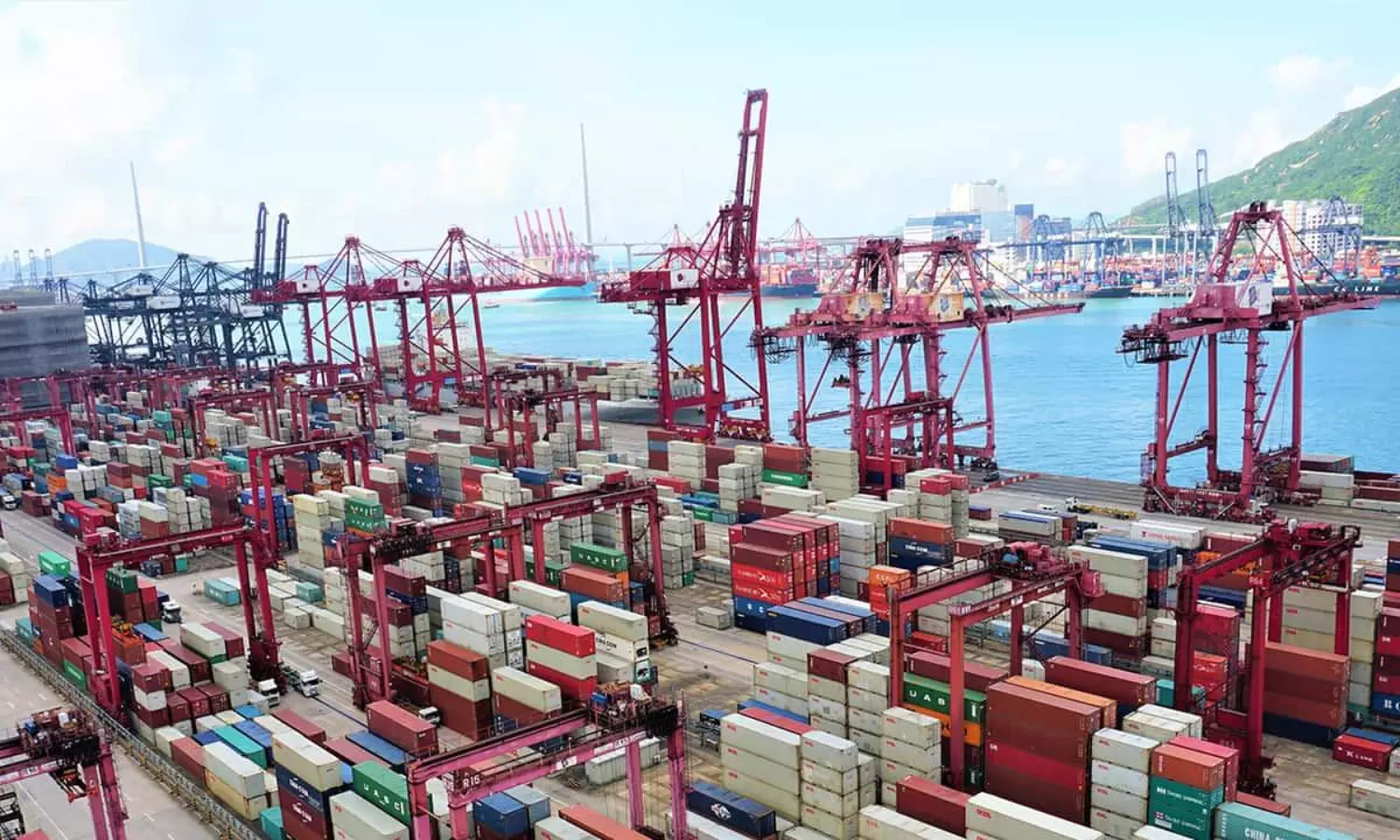Transhipment ports challenged by call changes amid Red Sea crisis
Drewry expects congestion at transhipment ports to remain high but easing is anticipated as carriers add more capacity

Photo Credit: Hong Kong Maritime and Port Board
Key transhipment ports, such as Singapore, have witnessed a sharp rise in congestion due to the impact of Red Sea carrier service diversions, which have led to fewer vessel calls but larger average exchanges.
"This has added to yard congestion," says Drewry in its latest update. "Port productivity has also taken a hit in recent months. The time spent by ships waiting before berthing at high-volume ports tracked by Drewry increased 43 percent between Q32023 and Q22024 – to over 400,000 hours."
Singapore is a microcosm of transhipment ports around the world where changes to carrier service patterns in response to the Red Sea crisis have wrought havoc to container terminal operations, the update added. "It is experiencing a density of shipping containers in their terminals close to the records of the pandemic period. In the five months to May, throughput at the port grew eight percent YoY, representing a strong start to the year but not enough on its own to challenge existing handling capacity."
However, the rerouting of container vessel services away from the Red Sea in response to the Houthi attacks on shipping resulted in a 22 percent increase in average parcel sizes in the period between January and May, according to Drewry’s Ports and Terminals Insight.
"Drewry estimates that the average time taken to handle 1,000 TEU rose 10 percent over this period to 0.32 days, meaning that the average time to complete the recently enlarged exchanges for a typical ULCV (>18K TEU) leapt 41 percent from 1.1 days in January to 1.7 days in May."
Drewry expects congestion at major transhipment ports to remain high but some easing is anticipated as carriers add more capacity and restore some of their disrupted schedules.


